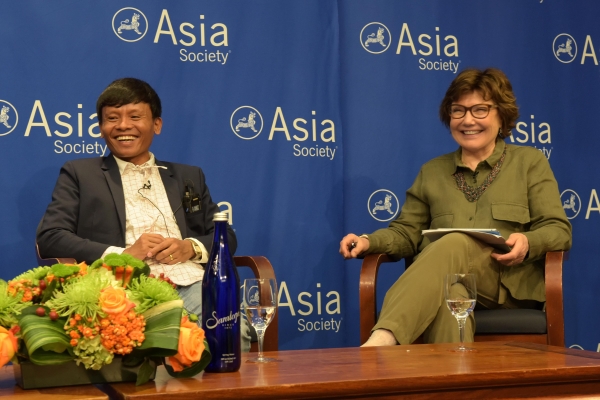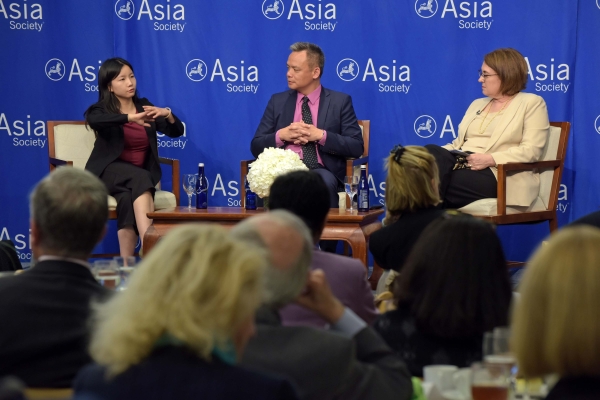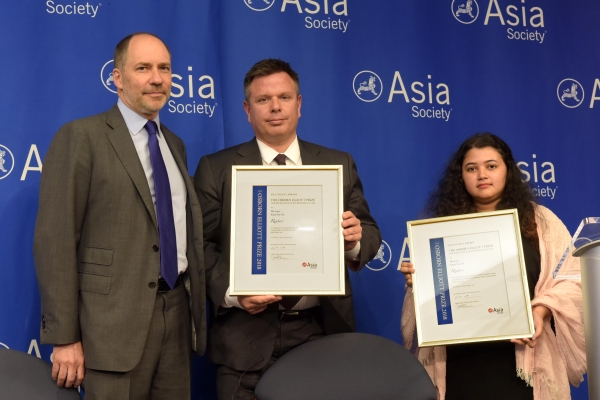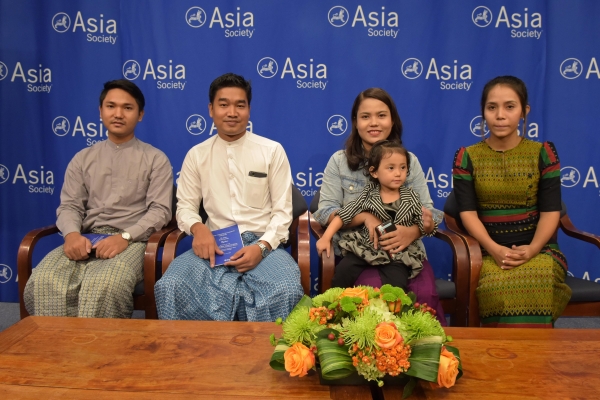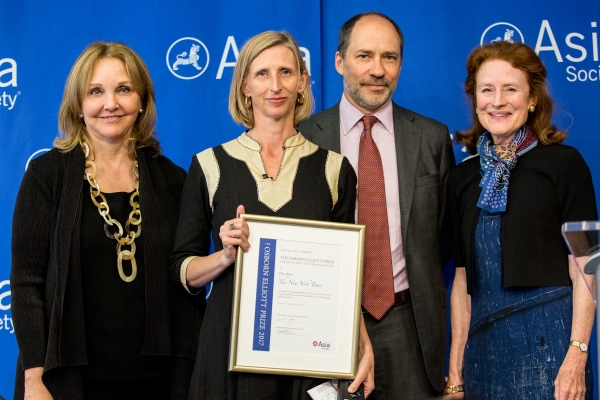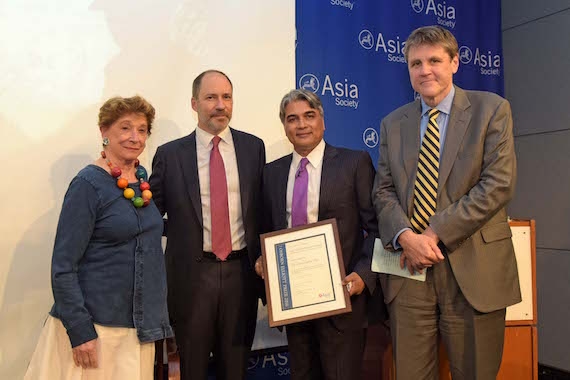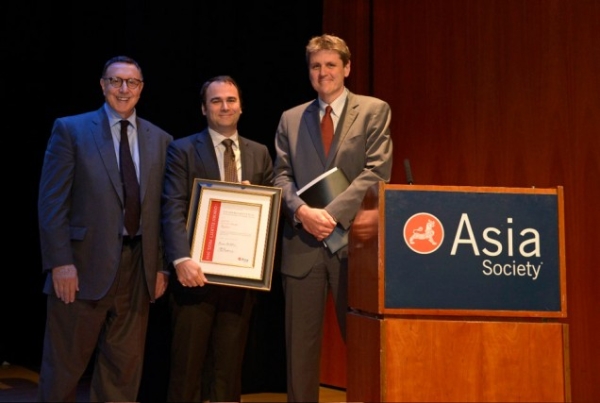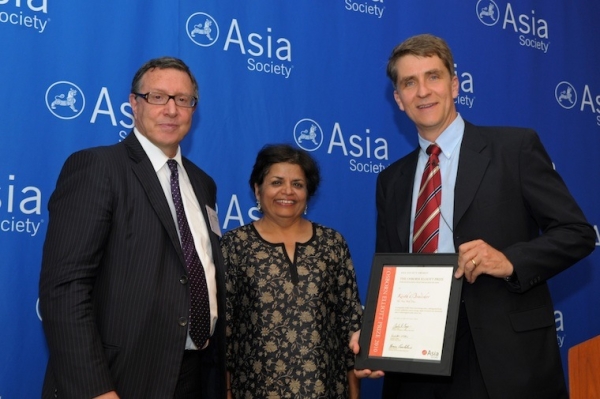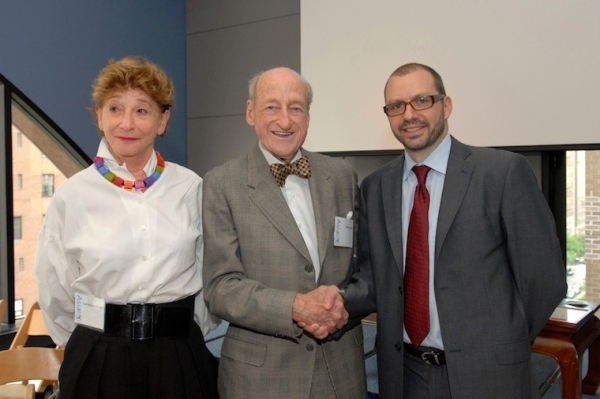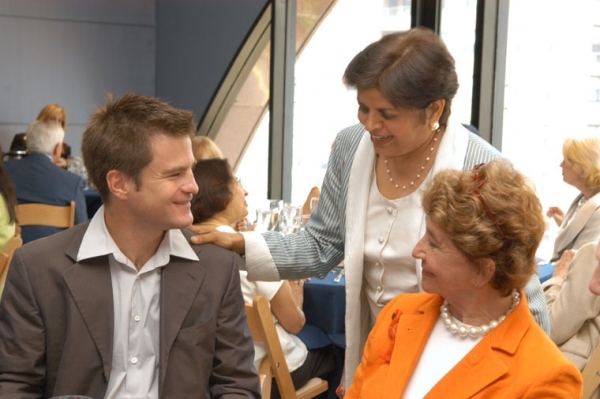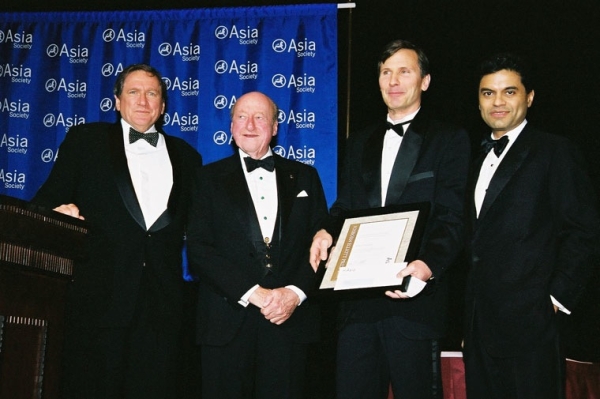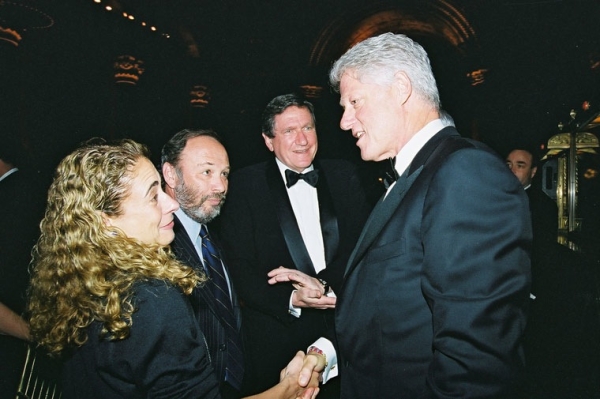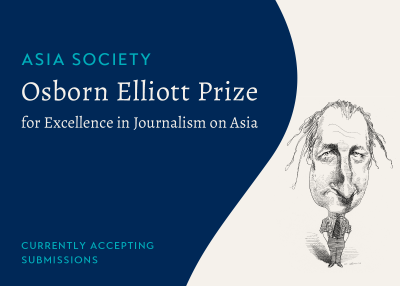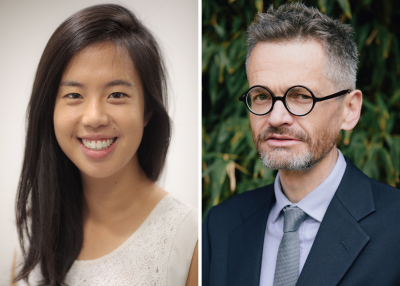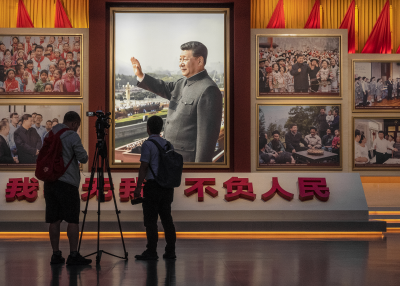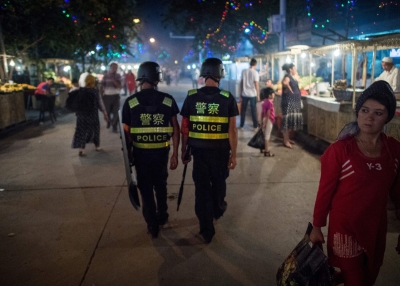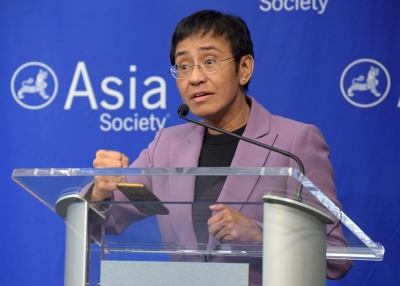Osborn Elliott Prize
For Excellence in Journalism on Asia
The winner of this year's Osborn Elliott Prize will be announced later in spring, and celebrated at an awards program in June 2024.
The Osborn Elliott Prize for Excellence in Journalism on Asia, affectionately referred to as the “Oz Prize,” is awarded annually to a writer or team of writers who has produced the best example of journalism about Asia in print or online during the calendar year. The 2023 prize was awarded to Sue-Lin Wong and David Rennie of The Economist for their China coverage.
Established in 2003, the prize honors the late Osborn Elliott, a legendary journalist and former editor-in-chief of Newsweek. Elliott set new standards for reporting and editing, and became one of the earliest practitioners of “civic journalism,” the deliberate focusing of the journalistic enterprise on urgent issues of public policy.
An independent jury, chaired by Marcus Brauchli, managing partner of North Base Media and former editor of the Washington Post and the Wall Street Journal, selects the winner. The 2023 jury also included Barbara Demick, journalist, author, and 2006 Oz Prize winner; Dorinda Elliott, Executive Director of the Fairbank Center for Chinese Studies at Harvard University and formerly with Newsweek; Nisid Hajari, author, member of the Bloomberg editorial board and a former top editor at Newsweek; and Norman Pearlstine, media executive and advisor and former top editor at the Los Angeles Times, Time Inc., and The Wall Street Journal.
Previous Oz Prize Winners
2023: Sue-Lin Wong and David Rennie, The Economist
2022: Matthieu Aikins and Jim Huylebroek, New York Times Magazine
2021: Alice Su, Los Angeles Times
2020: Gerry Shih, The Washington Post
2019: Team of Reporters, Associated Press
2018: Wa Lone and Kyaw Soe Oo, Reuters
2017: Ellen Barry, The New York Times
2016: Sudarsan Raghavan, The Washington Post
2015: Team of Reporters, Bloomberg News
2014: Team of Reporters, Reuters
2013: Team of Reporters, Bloomberg News
2012: April Rabkin, Fast Company
2010: Keith Bradsher, The New York Times
2009: Team of Reporters, International Herald Tribune
2008: Shai Oster, The Wall Street Journal
2007: Evan Osnos, Chicago Tribune
2006: Barbara Demick, Los Angeles Times; Matthew McAllester, Newsday
2005: Philip P. Pan, The Washington Post
2004: John Pomfret, The Washington Post
2003: Elisabeth Rosenthal, The New York Times
About Osborn Elliott, 1924-2008
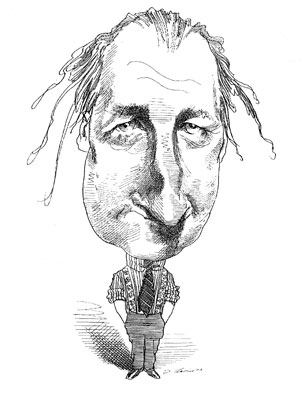 The Osborn Elliott Prize for Excellence in Journalism on Asia honors a legendary journalist whose inclusive public dialogue and civic engagement characterized his life’s work.
The Osborn Elliott Prize for Excellence in Journalism on Asia honors a legendary journalist whose inclusive public dialogue and civic engagement characterized his life’s work.
Oz Elliott’s career began with the New York Journal of Commerce and TIME magazine half a century ago. He moved to Newsweek, where he served as editor, editor-in-chief, CEO and chairman from 1961 to 1976. During his long tenure, Elliott significantly shaped a new and more populist journalism. By launching the “My Turn” feature, he opened the magazine to a broader range of public opinion, in addition to engaging such regular columnists as Paul Samuelson, Milton Friedman and Meg Greenfield. His proudest accomplishment during those years was Newsweek’s outspoken support for the emerging civil rights movement: in 1963 he devoted a special issue to African-Americans.
Civic duty and journalism were constant themes in his life. In 1975 Oz Elliott became founding chairman of the Citizens Committee for NYC. A year later he became New York’s first Deputy Mayor for Economic Development. This was followed by 15 years as dean and professor at the Columbia University Graduate School of Journalism, where he established the Poliak Center for First Amendment Studies and the Delacorte Center for Magazine Journalism. In 1992 he led a march on Washington of 250,000 people protesting the federal neglect of U.S. cities.
Oz Elliott was a fellow of the American Academy of Arts and Sciences. He served on numerous boards, including Asia Society, the American Museum of Natural History, the New York Public Library and Harvard’s Board of Overseers. He was among the first to be inducted into the Magazine Editors Hall of Fame. He served on the Pulitzer Prize Board, wrote books, and received honorary degrees and many journalism awards. Through his leadership as a civic journalist and civic stalwart, he inspired and trained thousands to become active partners in shaping our society. Though Oz died in 2008, his contribution is a lasting legacy.

